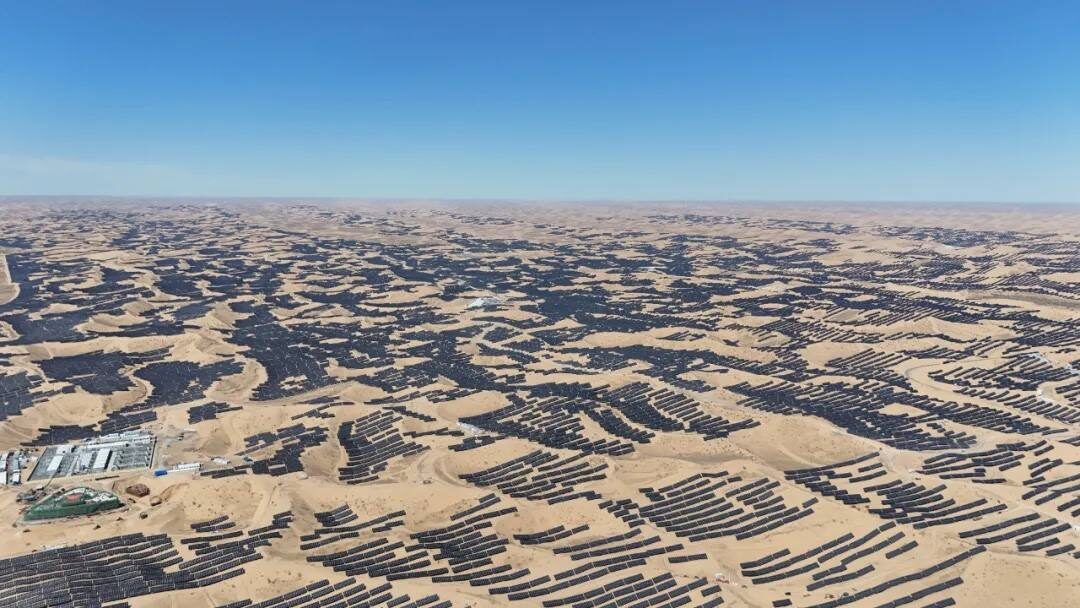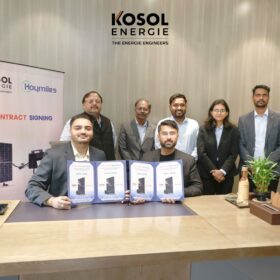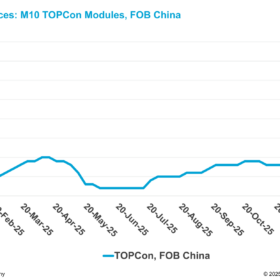From pv magazine France
Asian solar module manufacturers are quickly adjusting to meet France’s strict low-carbon requirements for residential systems eligible for a 5.5% VAT rate, with several new compliant products announced and more expected soon.
French lawmakers had aimed to give European producers an edge by tying the reduced VAT for residential solar to tight carbon footprint limits, but Asian manufacturers have swiftly retooled production to meet the same standards.
Chinese PV producer JinkoSolar recently announced a 500 Wp module with a carbon footprint of 520 kgCO₂eq/kWp, below the 530 kgCO₂eq/kWp threshold under the 5.5% VAT decree. Certification for the module, distributed in France by BayWa re Solar Systems, is now underway. JinkoSolar said the result was achieved partly by sourcing silicon from Germany.
DMEGC Solar, another Chinese company, confirmed shipment to France of its first modules eligible for the reduced VAT. Its DM500M10RTB60HBT models hold the ECS PPR2_V2 No. 024-2025_009 carbon certificate, with a footprint of 502.658 kgCO₂eq/kWp.
Contacted by pv magazine France, the company declined to explain how it reached the figure. DMEGC added that the modules also meet the decree’s other conditions: silver content below 14 mg/W, lead below 0.1%, and no cadmium.
More manufacturers are expected to follow. Sources said JA Solar is preparing to release a similarly low-carbon module. Chinese-Canadian producer Canadian Solar, while not directly referring to VAT eligibility, unveiled in September a heterojunction (HJT) module rated at 660 W with a carbon footprint of just 285 kgCO₂eq/kW.
The company attributed the result to thinner wafers – 110 μm versus 130 μm to 135 μm of tunnel oxide passivated contact (TOPCon) or back-contact cells – as well as higher ingot use efficiency, optimized HJT cell production, and lower overall energy consumption compared with TOPCon or back-contact module manufacturing.
This content is protected by copyright and may not be reused. If you want to cooperate with us and would like to reuse some of our content, please contact: editors@pv-magazine.com.









By submitting this form you agree to pv magazine using your data for the purposes of publishing your comment.
Your personal data will only be disclosed or otherwise transmitted to third parties for the purposes of spam filtering or if this is necessary for technical maintenance of the website. Any other transfer to third parties will not take place unless this is justified on the basis of applicable data protection regulations or if pv magazine is legally obliged to do so.
You may revoke this consent at any time with effect for the future, in which case your personal data will be deleted immediately. Otherwise, your data will be deleted if pv magazine has processed your request or the purpose of data storage is fulfilled.
Further information on data privacy can be found in our Data Protection Policy.